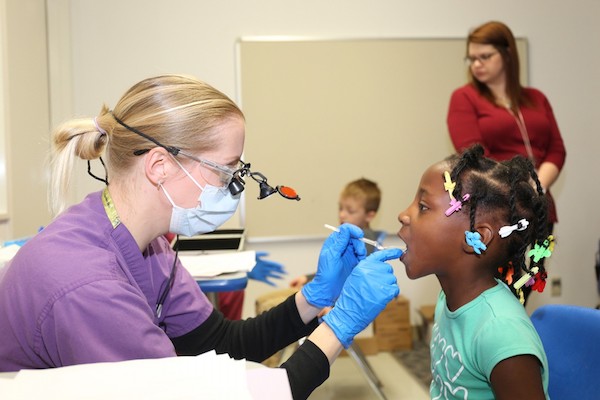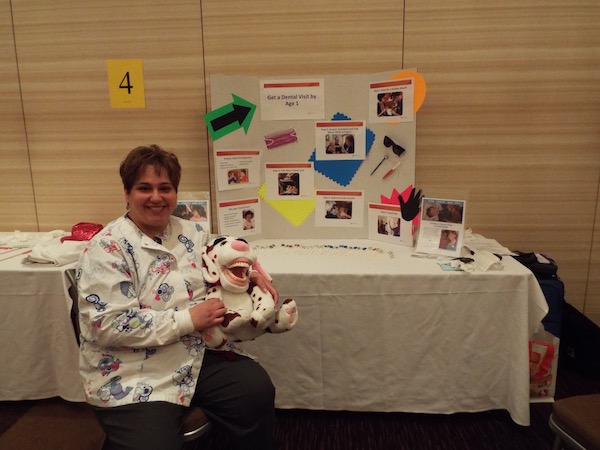 Dental hygienists play an important role in promoting oral health and preventing oral disease. Because of this role, the National Center on Health, Behavioral Health, and Safety (NCHBHS), working in partnership with the American Dental Hygienists’ Association, created the Dental Hygienist Liaison (DHL) program. Under the DHL program, one dental hygienist from each state volunteers to help promote oral health for pregnant women and children enrolled in Head Start.
Dental hygienists play an important role in promoting oral health and preventing oral disease. Because of this role, the National Center on Health, Behavioral Health, and Safety (NCHBHS), working in partnership with the American Dental Hygienists’ Association, created the Dental Hygienist Liaison (DHL) program. Under the DHL program, one dental hygienist from each state volunteers to help promote oral health for pregnant women and children enrolled in Head Start.
This Brush Up on Oral Health tip sheet describes the role of DHLs and how they can help staff promote oral health and prevent oral disease in Head Start programs.
Role of the Dental Hygienist Liaison
DHLs provide a communication link between NCHBHS and Head Start programs in their states. DHLs work with state and local organizations to solve problems related to access to oral health care for pregnant women and children. They also share information and resources about promoting oral health and preventing oral disease with program staff and families.
Every state has a DHL to promote good oral health among Head Start participants. To contact the DHL in your state, send a message to health@ecetta.info.
Dental Hygienist Liaisons and the Promotion of Oral Health
 DHLs can help promote oral health in the following ways:
DHLs can help promote oral health in the following ways:
- Collaborate with state organizations and offices such as oral health programs and Head Start Collaboration Offices (HSCOs). For example, DHLs can work with HSCOs to identify oral health needs and activities for local Head Start programs.
- Share information about the importance of oral health and regular oral health visits, good nutrition and oral hygiene practices, and oral-injury-prevention strategies with program staff.
- Help Head Start staff identify and establish dental homes for pregnant women and children, encourage pregnant women to get all needed oral health care, and encourage parents to get all needed oral health care for their child and themselves.
- Provide or work with a local oral health professional to deliver training for center-based and home visiting staff on establishing partnerships to improve oral health for pregnant women and children and engaging parents to promote oral health. Training may also focus on preventive practices. For example, topics could be brushing with fluoride toothpaste, drinking fluoridated tap water, and receiving fluoride varnish applications.
- Oral health education sessions for families.
- Fluoride varnish applications for children.
- Serve on Head Start health services advisory committees or oral health advisory boards and coalitions.
- Meet with state and local oral health professionals to share information about the Head Start program’s commitment to oral health and about assistance available to help program participants get oral health care.
- Share resources (e.g., educational materials, contact information for oral health professionals) with Head Start program staff and families.
Read more:
Resource Type: Article
National Centers: Health, Behavioral Health, and Safety
Audience: Teachers and Caregivers
Series: Brush Up on Oral Health (BUOH)
Last Updated: February 3, 2025
